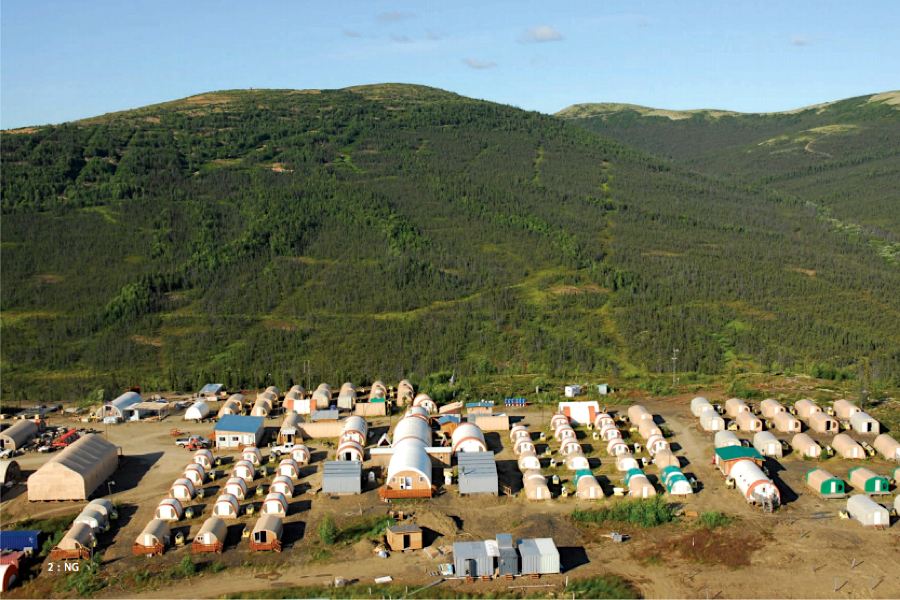Barrick, NovaGold report additional assay results for Donlin

According to NovaGold, the Donlin deposit hosts one of the largest and highest-grade undeveloped open-pit gold endowments in the world, with an estimated 39 million ounces of gold grading 2.24 g/t in the measured and indicated resource categories.
The Donlin deposit hosts one of the largest and highest-grade undeveloped open-pit gold endowments in the world
So far, results for 67 holes have been received, representing approximately 16,680 m of the total lengths drilled. The remaining assay results are expected in the first quarter of 2021.
The latest assay results from both the ACMA and Lewis deposit areas continue to demonstrate higher drilled grade-thickness than predicted by previous modelling. Data collected has also resulted in an improved understanding of the controls on mineralization.
Of the drill results previously reported in October, the top five intervals include: 103.88 m grading 6.1 g/t gold, 8.14 m grading 45.3 g/t gold, 37.30 m grading 7.0 g/t gold, 39.15 m grading 4.3 g/t gold and 23.80 m grading 6.5 g/t gold.
Additional confirmation and extension drilling are planned in 2021 focusing on mineralization continuity, structural control, resource model upgrades and geotechnical data collection.
“Assay results received to date are encouraging and support the drill program to better understand the Donlin Gold orebody and de-risk the project development,” Barrick president and CEO Mark Bristow said in a press release.
According to Bristow, the ongoing modelling work and planned follow-up drilling this year could further enhance the project parameters.
“In an era characterized by declining gold grades, it is truly rewarding to continue to be able to report drill results that support the potential of Donlin Gold, already an impressive asset in terms of size and grade for a large-scale open-pit gold project,” NovaGold president and CEO Greg Lang stated.
“Indeed, the latest assay results continue to point to additional high-grade gold intersections that have only served to add confidence in recent geologic modeling concepts, while confirming multiple high-grade extensions in both the intrusive (igneous) and sedimentary rocks.”




